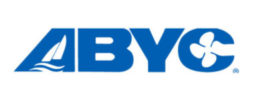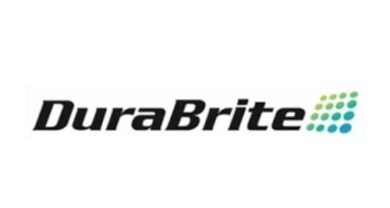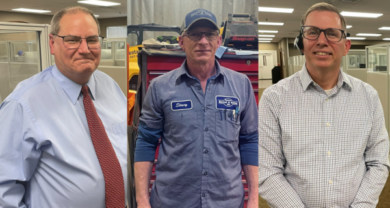F&I weathers stormy fall
The unprecedented series of storms that slammed the southeastern United States last fall made for a selling season that was anything but business as usual for companies providing finance or insurance to the marine industry.
But the impact felt by those doing business in marine F&I wasn’t shared equally.
One report estimated the damage done to recreational boats by Hurricanes Charley, Frances, Ivan and Jeanne totaled $680 million.
The Boat Owners Association of The United States, which issued the report, said that figure did not include damage to commercial vessels, marinas or other infrastructure.
Most of the carnage was concentrated from Louisiana to Florida’s Atlantic Coast, but some spread as far north as the Great Lakes states.
As might be expected, many insurers were hit hard in the wake of such widespread damage. And, as also might be expected, those with a lot of clients in the state of Florida, which was struck by each of the four storms, bore the brunt financial burden.
For some, the burden was too much.
Kathryn McKenna, the agency manager for Veritas Insurance Group – a subsidiary of Priority One Financial Services – said some of the companies that supplied insurance to her clients just decided it was no longer in their best interests to do business in the state.
“Our major supplier in Florida just pulled out totally from the business,” McKenna said. “And our second supplier at the time had coverage that I did not feel comfortable providing the insured’s. The insurance covered all normal perils: fire, theft and things like that, but my second provider excluded any damages from a named storm. Once it was named, whether it was a tropical storm or a hurricane, it excluded any damage.
“So I passed on any submissions until we got a new market. Now I have several different carriers, and this has taught me not to put all my eggs in one basket to make sure that something catastrophic like this doesn’t happen once again.”
As harmful as the storms were to marine insurers at the time, the ongoing impact they continue to have, may even be more damaging. McKenna said the while some insurers decided to bail on the Florida market in the wake of the hurricanes, this is not such an uncommon practice, and she believes many will eventually return – although she’s seen no evidence of that yet.
However, McKenna says a lot of companies don’t have an “appetite” to do business in Florida’s Dade, Palm Beach or Monroe Counties located on the southeastern tip of the state.
Another trend she has seen emerging, which McKenna says is already hurting boat sales, are insurance companies instituting separate deductibles for windstorms. One policy she recently wrote, for example, had a $500 deductible for all perils except windstorms, which had its own, separate, $1,000 deductible.
“I’ve had a lot of instances lately where that has actually killed the deal,” McKenna said.
Fallout for finance
The storm’s impact, while significant, wasn’t nearly as great for those companies that provide financing to the industry.
Ken Landon, CEO of Key Recreational Lending and executive vice president of KeyBank USA, said his company definitely felt the effects of the hurricanes.
“There is just no question [the hurricanes] an impact for the third quarter on boat sales and also financing,” Landon said. “We were down in that timeframe about 40 percent from the year before, for that marketplace.
“Our effect was only for August, September and parts of October, then we returned to normal, as far as our volume. But we were definitely off in those three months. I think it started early in August.”
Landon said he is optimistic about 2005 and that the outlook for the marine financing business is good, both this year and beyond. He expects strong sales of both new and used boats this year and says that the improved economy, the launch of the Grow Boating campaign and the disposable wealth that baby boomers have begun to spend, will combine for a bright future.
One of the companies that supplies finance companies with the tools to do their jobs most efficiently also says its business is strong.
Darren Able of Integrated Dealer Systems, a provider of dealer and marina management systems, said his company is doing well.
“As far [the hurricanes having] a direct impact on F&I, I really don’t know what that would be, other than just kind of an increase in business all at one time due to people replacing the boats they lost and obviously in the insurance on those, that the boat dealers can write specialty insurance on them that maybe better than the people can go out and get on their own,” Able said. “Beyond that we haven’t heard anything as far as numbers go, we’ve just heard that they’ve been busy.
“We’ve done really, really well, in the last quarter of last year and so far this year, our F&I software has just gone through the roof, so we’ve had a really big impact on our dealers with that. We’re signing up new dealers all the time with that.”
The hurricanes didn’t stop IDS from entering into an agreement with
Toronto-based Curomax Ltd. to develop a custom interface between the Curomax loan origination portal and the IDS F&I program FIpoint.
And they didn’t stop Curomax from a February launch of its Internet loan origination platform with Bank of America as the launch lender, to marine dealer clients Florida.
“We’ve really received a very warm response from the market, at the boat shows we’ve been to and at the MRAA [Marine Retailers Association of America] conference,” says Alan Bird, Curomax president and CEO. “The response from the dealer community has been, quite frankly, astounding for us. They are ready to utilize the technology to help support their customer base.”
Bird estimates his company, which now does about 23 percent of its business in the marine marketplace, will have upped that figure to over 50 percent within the next 18 months.
“Bank of America has a requirement for us to be in 50 states,” Bird says. “And over the rollout period we will be in all 50 states. It’s a very large market.”
The insurance outlook?
The future is less certain for marine insurers. Premiums are high. High enough, in fact, that McKenna says buyers are sometimes shocked when she gives them an insurance quote these days.
“When people gasp, I have to explain to them that the boat insurance industry really took a huge hit during those four storms,” McKenna says.
In response to those higher premiums, people have begun to decrease the amount of their liability insurance in order to lower their premiums.
McKenna recommends that people shopping for boat insurance buy what is called an “agreed value” policy, which provides insurance for the current purchase price of the vessel.
Some policies, which are based on the actual cash value of the boat, will refund the value of the boat at the time of its loss, taking into account the depreciation that occurred from the time the boat was purchased until it was lost. That disparity, between purchase price and the amount on the check an owner receives from the insurance company after the boat is lost, can sometimes make it hard for the owner to afford a new boat.
“I think it’s extraordinarily important in this market now, and especially living in Florida, to quote everything on agreed value,” McKenna says.
The good news for McKenna is that her business is flourishing, and she foresees no drop off. The bad news for the marine insurers is that the Atlantic hurricane season begins again in two months.




